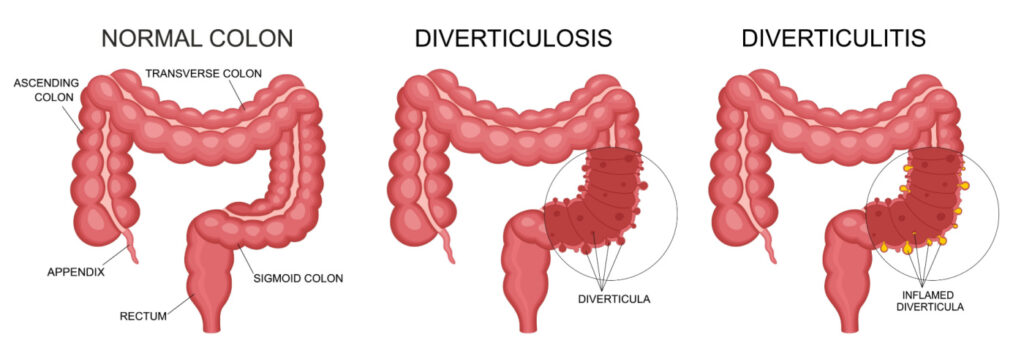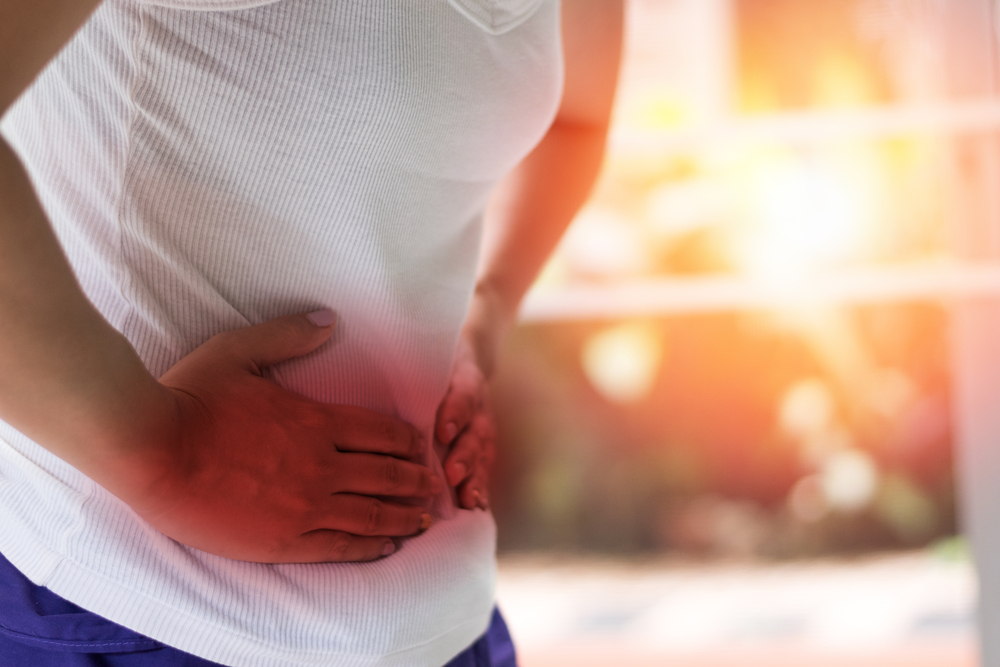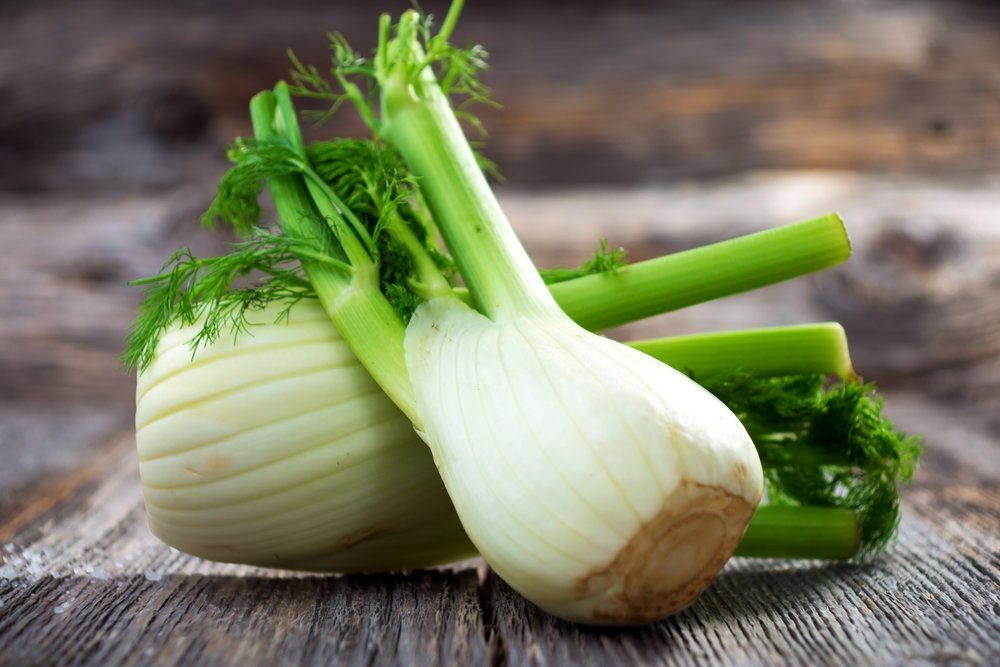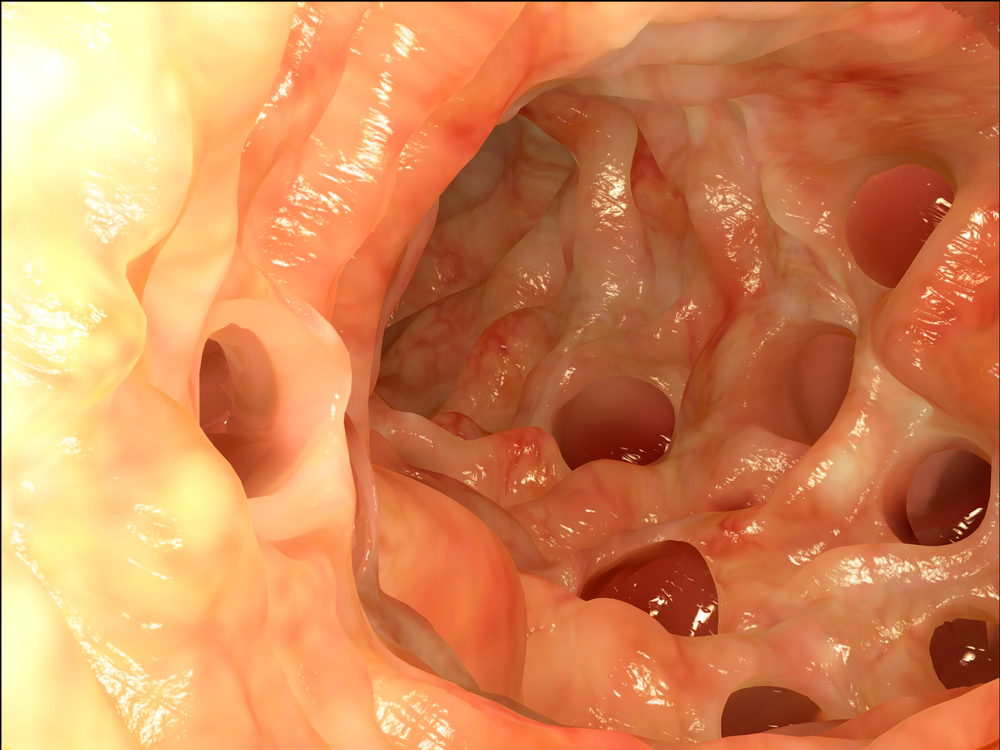What's On This Page?
ToggleThis article will discuss diverticulitis and diverticulosis. But many of you may not realize you even have it. Let me ask you this question.
Do you happen to have these symptoms?
* Abdominal pain, lower left side
* Nausea and/or vomiting
* Diarrhea or constipation
* Bloating or gas
* Fever or chills
Diverticular disease causes those symptoms. The condition itself is termed diverticulosis, but this can cause diverticulitis which can be excruciating. Diverticulosis affects many people, especially as they age. About 60 percent of people older than age 60 could have it, and up to 25% of them may wind up with an inflammatory episode called diverticulitis.
Exploring natural remedies can be a helpful addition to your wellness journey so down below you will find natural remedies that might bring comfort and relief. These herbal remedies all promote better digestive health.
Diverticulosis is a common condition, characterized by the presence of small pouches or diverticula in the colon’s wall. 
Having a pouch doesn’t guarantee a problem or any sort of inflammation. Diverticulitis occurs when one of these pouches becomes inflamed or infected, usually because it fills up with some fecal material or food particles. It’s the “itis” that’s problematic.
Diverticulitis causes uncomfortable symptoms such as abdominal pain, fever, and noticeable changes in bowel habits. Managing diverticulosis (the condition) is essential to reduce the risk of diverticulitis (the attack).
The Hallmark Symptoms is Pain
Abdominal pain is a hallmark symptom of diverticulitis and everyone experiences it during an attack. It is usually described as a constant, crampy, or sharp pain.
Oddly, the pain can be referred to the right side, or even across the entire lower portion of your abdomen. This occurs due to a lot of inflammation and/or infection or if multiple diverticula (pouches) are involved.
So, while left lower quadrant pain is the most common presentation, it’s possible for the pain to be on the right side or involve both sides. The exact location and severity of pain varies from person to person. To contrast this with appendicitis, the pain for that condition is on the lower right side. Now let’s talk about natural ways to minimize risk for diverticulitis.

7 Herbal Remedies for Diverticulitis Relief
1. Peppermint: Peppermint supplements or tea can help soothe digestive discomfort in pretty much anyone, but this remedy should be avoided if you have acid reflux or heartburn. Peppermint acts like an anti-spasmodic.
The reason is that it will relax the lower esophageal sphincter, potentially exacerbating acid problems in people with gastritis or GERD. The good news is it helps people with diverticular problems.
2. Chamomile Ginger Tea: If you can’t handle peppermint, try this tea with chamomile and ginger. During flare-ups, these herbs can both help to reduce inflammation and pain in the abdomen. You can buy them as supplements.
3. Aloe vera gel: Aloe vera is known for its soothing properties and may help reduce irritation and inflammation in the digestive tract. The gel is better to use, just dissolve it in water. It has antioxidant properties, and this great side benefit of soothing sore gums.
4. Probiotics: Probiotics are beneficial bacteria that can help maintain a healthy balance of gut flora. They may support digestive health and reduce the risk of bacterial imbalances that can contribute to diverticulitis flare-ups. Dr. Ohhira’s brand is among my favorites because it helps your own flora fingerprint to so flourish and thrive, without introducing weird or odd strains that could cause low-grade sensitivities.
5. Berberine: Berberine is a compound found in certain plants and has demonstrated anti-inflammatory and antimicrobial properties. It may help reduce inflammation in the colon and inhibit the growth of harmful bacteria, potentially contributing to the management of diverticulitis.
6. Psyllium Husk: Psyllium husk is rich in soluble fiber, which can soften stools and promote regular bowel movements. By preventing constipation and reducing strain during bowel movements, psyllium husk may help lower the risk of diverticulitis flare-ups.

7. Fennel: Fennel seeds or tea have been used traditionally to ease digestive issues for a long time. Fennel contains compounds like “anethole” that relax the muscles in the colon, which improves bloating, fullness, and excessive gas. Anethole has natural painkiller properties.
Fennel is often used to ease discomfort caused by indigestion, flatulence, and Irritable Bowel Syndrome (IBS) symptoms. It calms intestinal spasms and helps promote regularity. This is important because constipation is a risk factor for diverticulitis.
I didn’t mention it in my Top 7 list because Triphala isn’t studied for diverticulitis per se. But if you have other digestive troubles, I highly recommend you read my other ARTICLE about it.
Dietary Considerations for Diverticulitis
As far as diet goes, there are many tweaks you can make, and they’re pretty simple. If you have diverticulitis, fiber is your friend. It’s number one on the list to help reduce constipation and maintain regularity. In doing so, it reduces the risk of food and/or stool getting stuck in the pouch.
Lots of people forget to drink, and their lips get dry and they dehydrate. Drinking water is important because it softens stools and helps it go through “the tube” and get out. Some people say to avoid steak, but I feel it’s okay to include in your diet, make sure it’s lean, and that your personal doctor doesn’t mind.
Medications to Minimize or Avoid Diverticulitis
Any medication that causes constipation can increase your risk of an attack. The category of antihistamines, opioid analgesics, and steroids are common offenders. That’s because many of those have anticholinergic side effects which means they are “drying” and as such, they cause constipation. Speaking of anticholinergic side effects, please read my other article entitled, These 8 Medications Trigger Wicked Memory Problems.
There are constipating supplements too, most notably iron (ie ferrous sulfate) and calcium used for bone health. These can cause constipation and increase risk of diverticulitis.

Risk Factors: These Increase the Risk of Diverticulitis
1. Low-fiber diet which leads to constipation
2. A lot of processed foods which inflame the colon
3. Obesity may contribute to diverticulitis flareups
4. Dairy because it is a common food sensitivity
5. Spicy foods or condiments which exacerbate symptoms
6. Medications that increase risk are listed above
Would Antacids or PPI Drugs Help?
Proton pump inhibitors (PPIs) are medications like omeprazole and they’re commonly used to reduce stomach acid production. You see these drugs used to treat gastroesophageal reflux disease (GERD) and stomach ulcers. But NO they do not help diverticulitis which is a structural problem, or an infection problem… but definitely not an acid problem.
If the topic of acid-blocking medications interests you, especially omeprazole, you may like to READ THIS.
What medication helps?
The type of medication used in a person with diverticulitis varies depending on many factors including the stage of disease, the severity, whether there is a fever, allergies and more. Often it is an antibiotic that’s used due to the presence of an infection in the pouch, or in several pouches. Here are medications that are sometimes prescribed:
Antibiotics: If there is evidence of infection, antibiotics are typically prescribed to treat the infection. Commonly used antibiotics for diverticulitis include ciprofloxacin (Cipro®) and metronidazole (Flagyl®) or amoxicillin-clavulanate (Augmentin®). The choice of antibiotics may vary depending on the severity of the infection and individual sensitivities.
Pain Medications: Over-the-counter pain relievers like acetaminophen (Tylenol) or prescription pain medications may be used to manage abdominal pain associated with diverticulitis. Opiates and NSAIDs may also be prescribed.
Surgery and Diverticulitis
Most cases can be handled with antibiotics but in severe cases or when complications arise, surgical procedures are required to remove the part of the colon that is obstructed or has an abscess.
When people have recurrent diverticulitis attacks, standard treatments become less effective and surgery may be required. Be sure to consult with a gastroenterologist about your options.
In severe cases, diverticulitis can lead to complications such as abscesses, perforations, or bowel obstructions, which can be serious and require surgery.
Diverticulitis and Hospitalization
For individuals with mild diverticulitis, a course of antibiotics prescribed by your healthcare provider can often be managed comfortably at home. In cases where the condition is more severe and complications arise, hospital-based treatment may be required to effectively address and prevent further issues. Surgery to remove the affected part of the intestine is a rare recommendation, typically considered only when very serious complications occur.
Summary
Diverticulitis can be quite painful and uncomfortable and requires medical supervision and treatment which may include antibiotics and analgesics. Dietary changes are almost always necessary.
Now that you have more information and some natural herbal options to try, you can embark on a journey that reduces pain and infection while improving your digestion. Making informed decisions about what you eat, which teas you drink, and so forth will hopefully reduce the number of times you have an episode.

Suzy Cohen, has been a licensed pharmacist for over 30 years and believes the best approach to chronic illness is a combination of natural medicine and conventional. She founded her own dietary supplement company specializing in custom-formulas, some of which have patents. With a special focus on functional medicine, thyroid health and drug nutrient depletion, Suzy is the author of several related books including Thyroid Healthy, Drug Muggers, Diabetes Without Drugs, and a nationally syndicated column.
